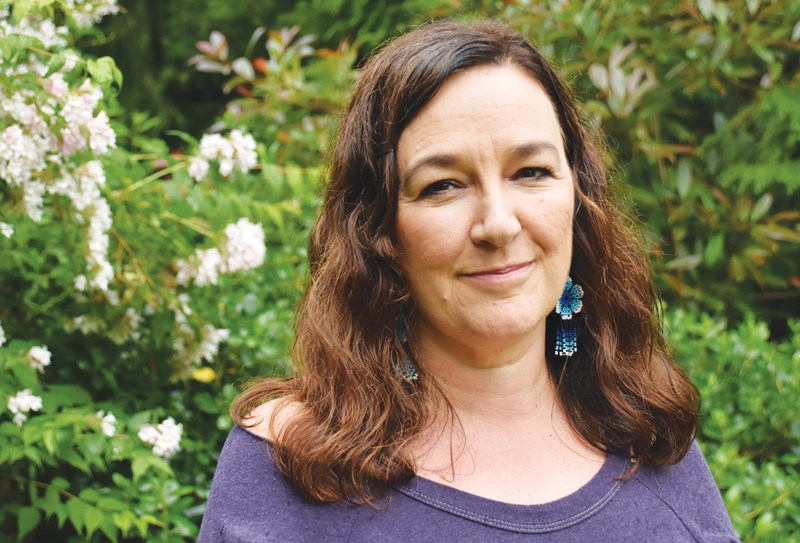She is a documentary filmmaker, artist and writer. For six years she was the City of Vancouver’s Aboriginal social planner and continues to work with the city as a consultant. She writes and directs children’s programming for APTN. And on Wednesday, June 20, a day before National Indigenous Peoples Day, Kamala Todd will share some of her films and speak about Indigenous law at the Gibsons Public Library.
Todd, who is Métis-Cree, moved to the Sunshine Coast from Vancouver in 2013 and has been involved in several Indigenous law projects, including the creation of short films for the Indigenous Law Research Unit at the University of Victoria’s Faculty of Law as well as for West Coast Environmental Law’s RELAW project.
“For me it’s been a learning curve and I’m certainly not an expert, but I love this new layer of reminding people there is Indigenous land and that there are laws that come from that land.”
Indigenous law, said Todd, offers the opportunity for Indigenous people to reclaim their sovereignty by asserting the protocols that emerge from their culture. “Indigenous law is interesting because it’s about revitalizing the laws that are already there. And most of those laws come from our stories and they come from the land and the language of the place,” said Todd from her home in Elphinstone.
But it can also refer to the recognition of rights within the Canadian legal system, as was the case in the landmark Supreme Court ruling that established land title for the Tsilhqot’in Nation. “Hopefully the nation will have the ability to say, ‘We say no,’” Todd said. “It’s kind of a big moment for Canada right now.”
But sometimes, politics and economics butt up against traditional laws, as has been the case with the Kinder Morgan pipeline expansion project and, more locally, the Burnco aggregate mining project, both of which have received some support from Indigenous communities. Todd said she is sympathetic to nations that have signed agreements with Kinder Morgan to alleviate poverty within their communities, but she also expressed a measure of disappointment that “deeper responsibilities” have been ignored. “There are a lot of sell-outs out there who are just as power hungry or in it for themselves... It’s complicated.”
To guide her interpretation of these tensions, she said she looks to the elders. “There’s enough people with very deep conviction that this is harmful to them and their future and the health of their communities that no matter how many nations say that [Kinder Morgan] is good for them, I will always side with the elders and the women and the children who are the land defenders and who take that role very seriously.”
For her, the responsibility of living on unceded territory such as the Sunshine Coast means seeking to understand and respect the protocols and laws of the Skwxwú7mesh and shíshálh nations at the municipal level, and also accepting that many who live here are guests on the land.
“I think there’s a lot of fear people have of recognizing Indigenous title or recognizing whose land it is, that somehow that means they can’t say it’s their home,” said Todd.
“But we all share the land now.”



